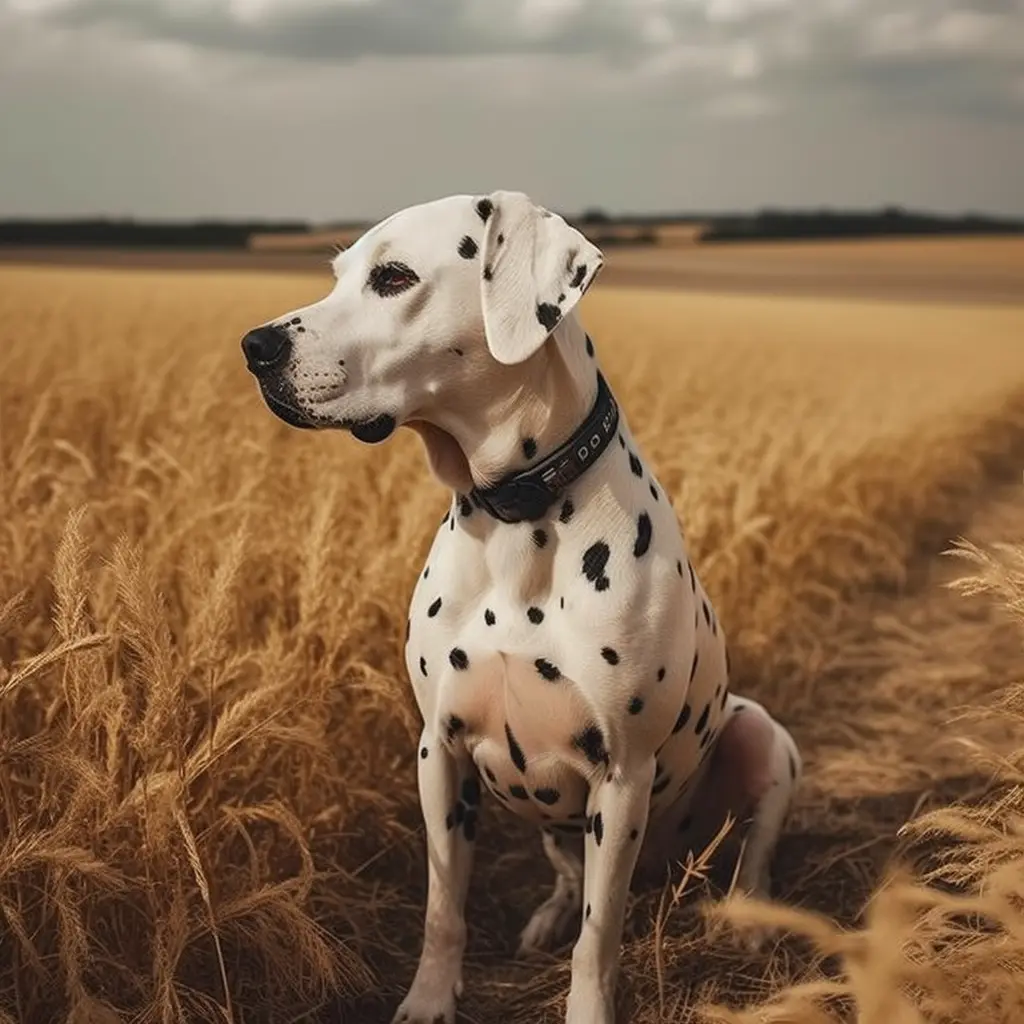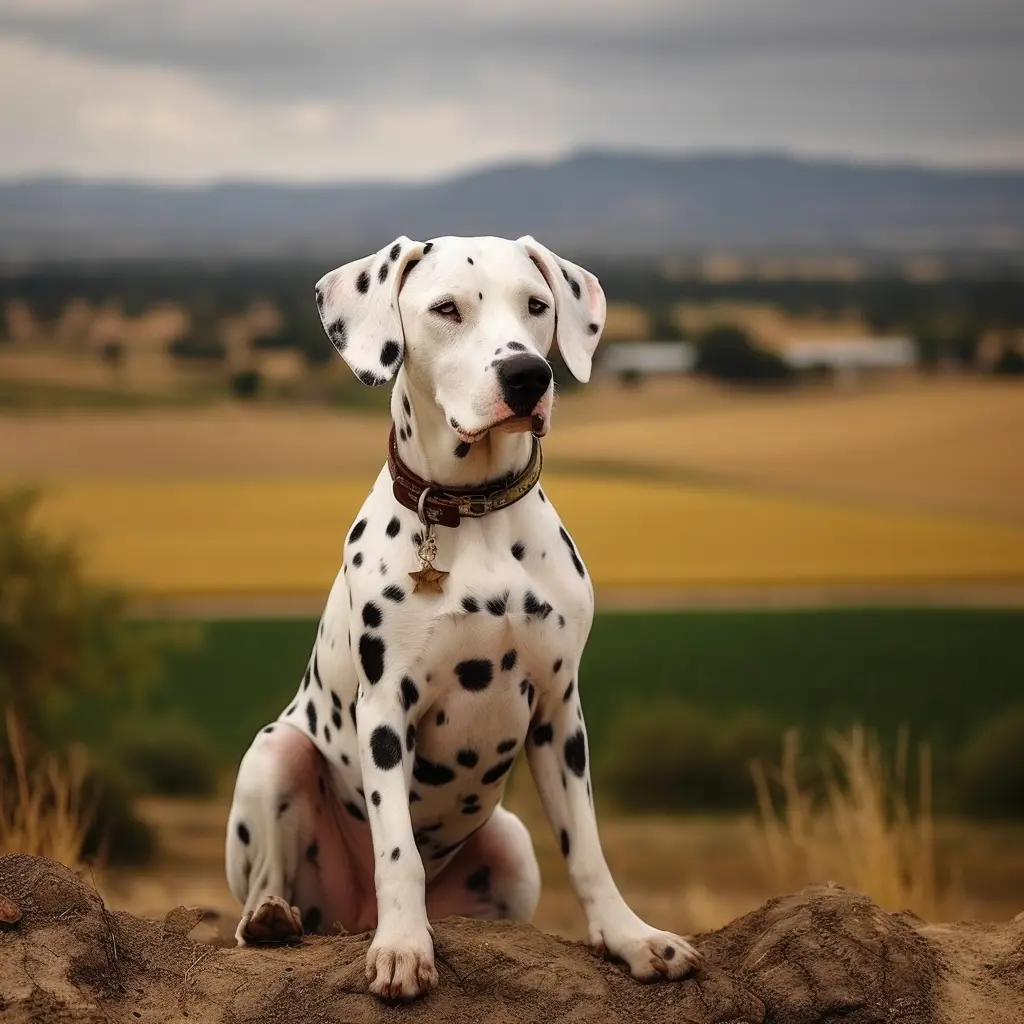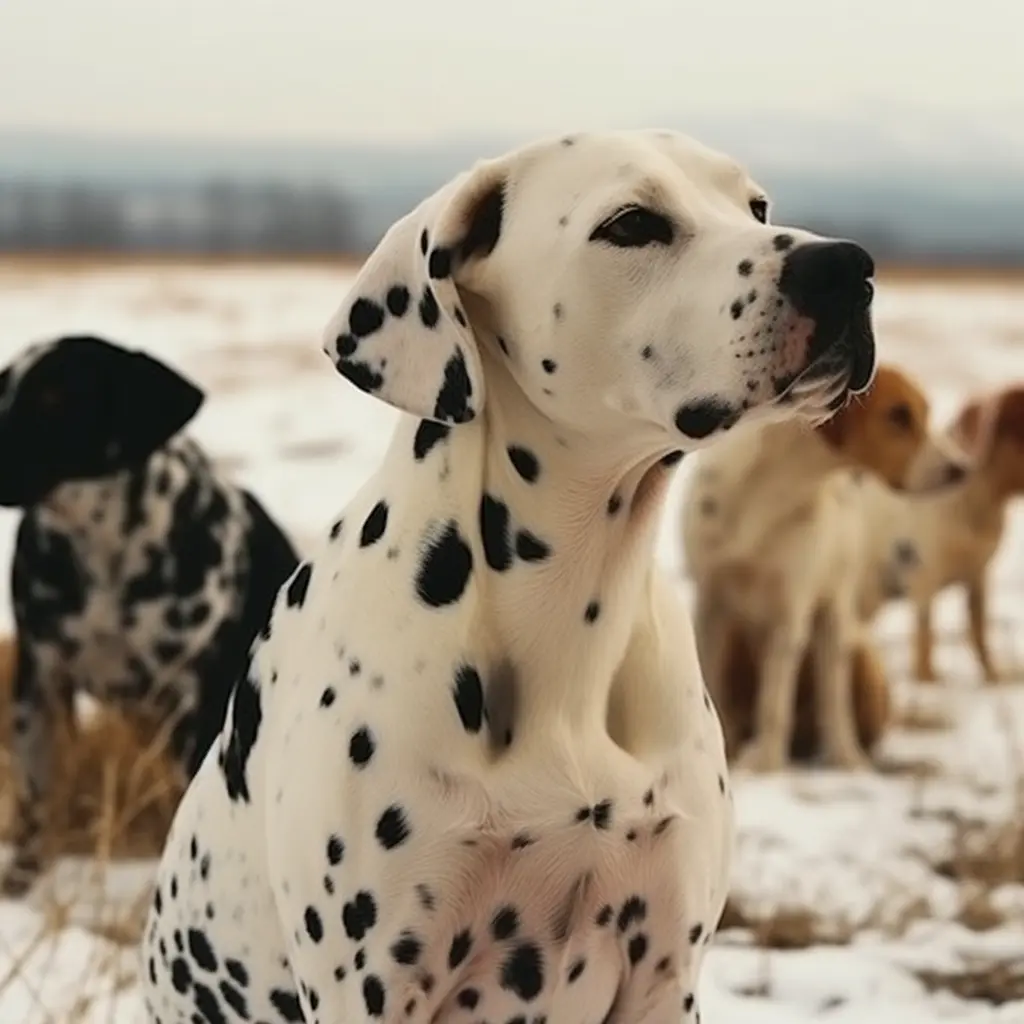The Dalmatian: A companion with history, character and charm.
*When we think of Dalmatians, images of elegant, black and white spotted dogs accompanying stagecoaches or being loyal companions to firefighters often come to mind. But the history of this fascinating breed goes far beyond these iconic images.
History of the Dalmatian
The origins of the Dalmatian are shrouded in legend, and its exact origins remain a mystery to this day. While some claim that the breed originated in Croatia, there are also theories about its origins in India or Egypt. In any case, the Dalmatian has a rich history dating back to the Middle Ages.
The breed was particularly popular at the European aristocratic courts and continued to develop, especially in the 19th century, when English aristocrats and French nobles became interested in these unique dogs. The first breed standard was published in England in 1882 and eight years later the Dalmatian was officially recognized.

The close connection between Dalmatians and horse-drawn carriages contributed to them being given the honorary name “Firehouse Dog”. In London, they helped clear the way for approaching fire engines and became popular mascots, especially in the USA.
Character and nature
The Dalmatian is not only known for its striking appearance, but also for its lively and intelligent nature. These dogs are very active and need a lot of exercise, which makes them ideal companion dogs for sporty people. They love to keep their humans company when running, cycling or even riding.

With an average life expectancy of over 12 years, Dalmatians are also popular as family dogs. Their nature is sensitive, attentive and easy to train. They love children, are family-friendly and are suitable as guard dogs as they are courageous and ready to defend themselves.
Consistent training is important to control their dominant behavior, especially with males. Early contact with conspecifics and a clear hierarchy within the family contribute to a harmonious life together.
Care and health
The Dalmatian’s characteristic black or liver-colored coat needs to be brushed regularly to control shedding. Although the short, dense coat is easy to groom, dog owners should ensure that their dogs are adequately protected, especially in cold environments.
In terms of health, Dalmatians are prone to hereditary deafness, bladder and kidney stones as well as allergies and skin rashes. Regular veterinary examinations and a balanced diet are important in order to recognize and treat potential health problems at an early stage.

All in all, the Dalmatian is a versatile dog with a fascinating history, a lovable character and a striking appearance. Whether as a loyal family friend, active sports companion or charming guard dog – the Dalmatian undoubtedly has a firm place in the world of dog breeds.
New dog breed descriptions in a quick overview
